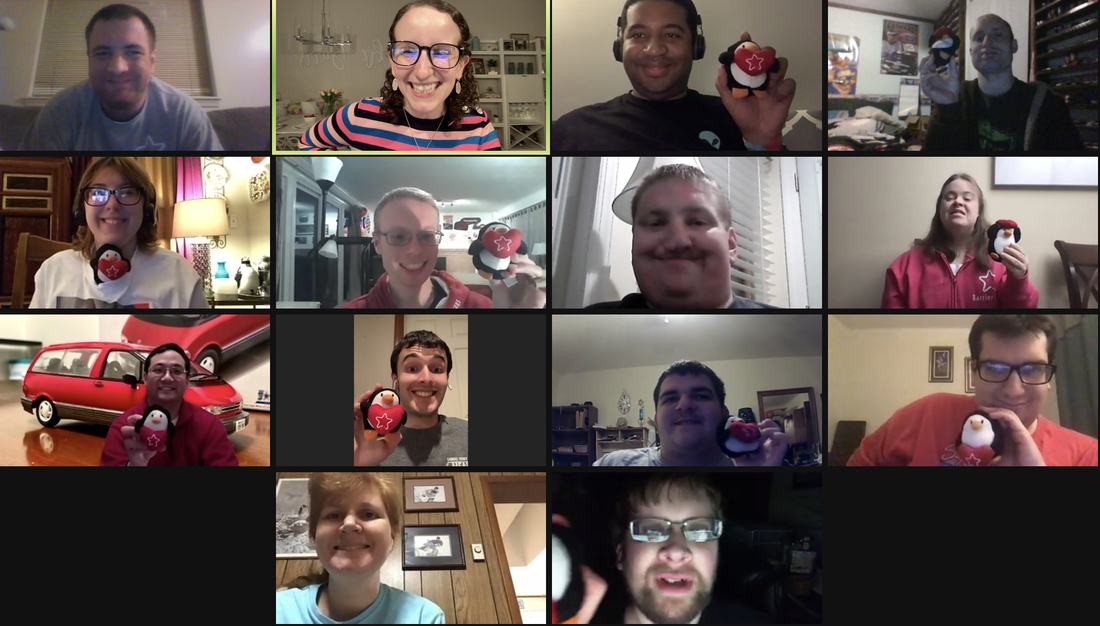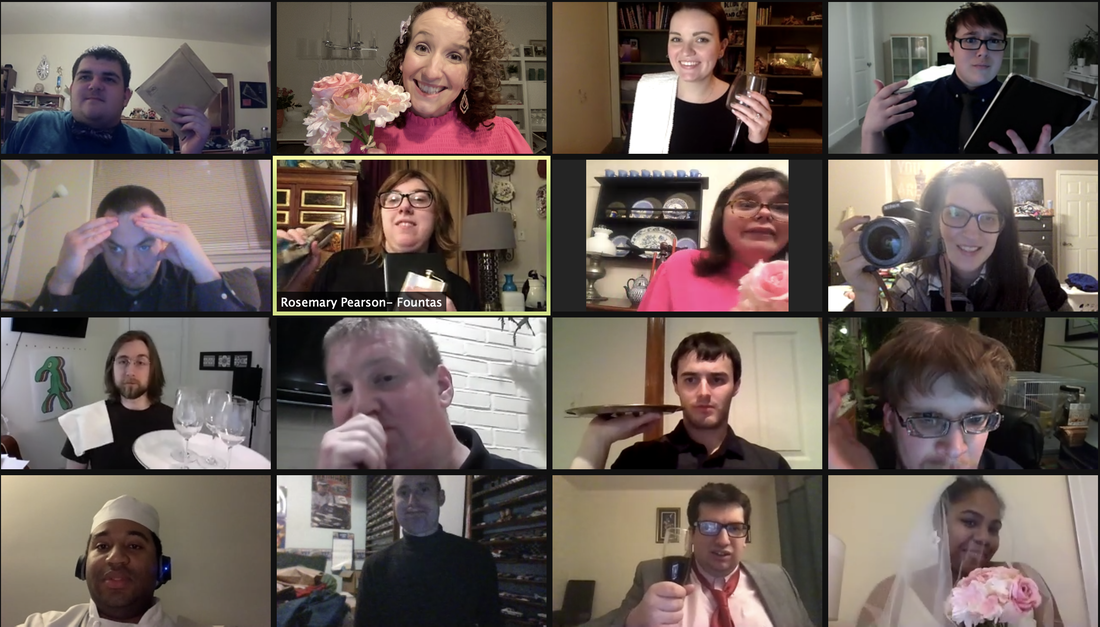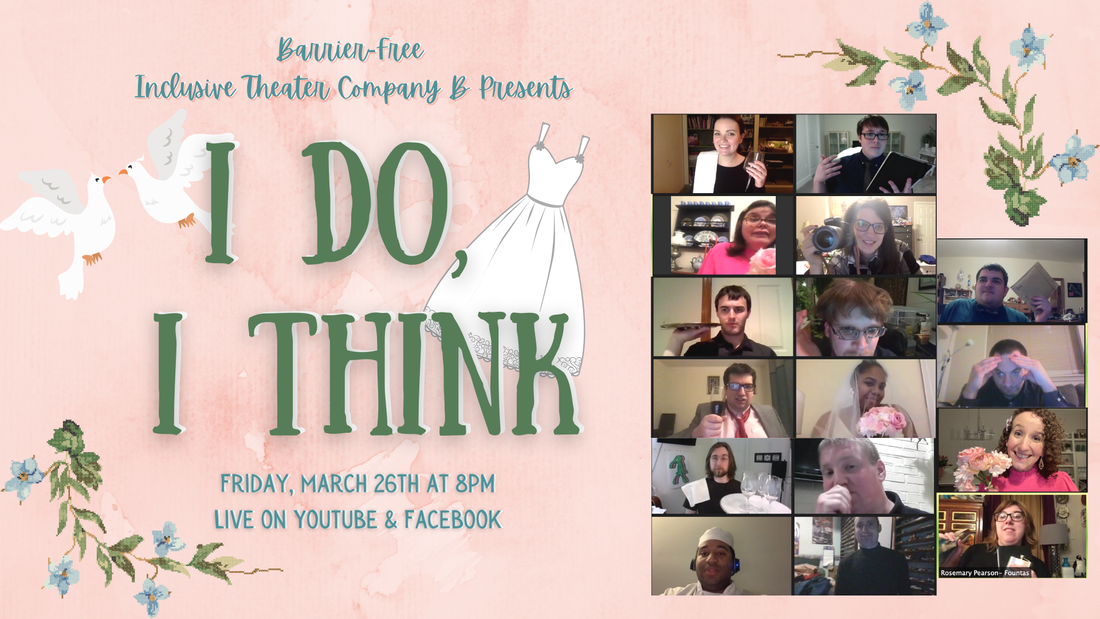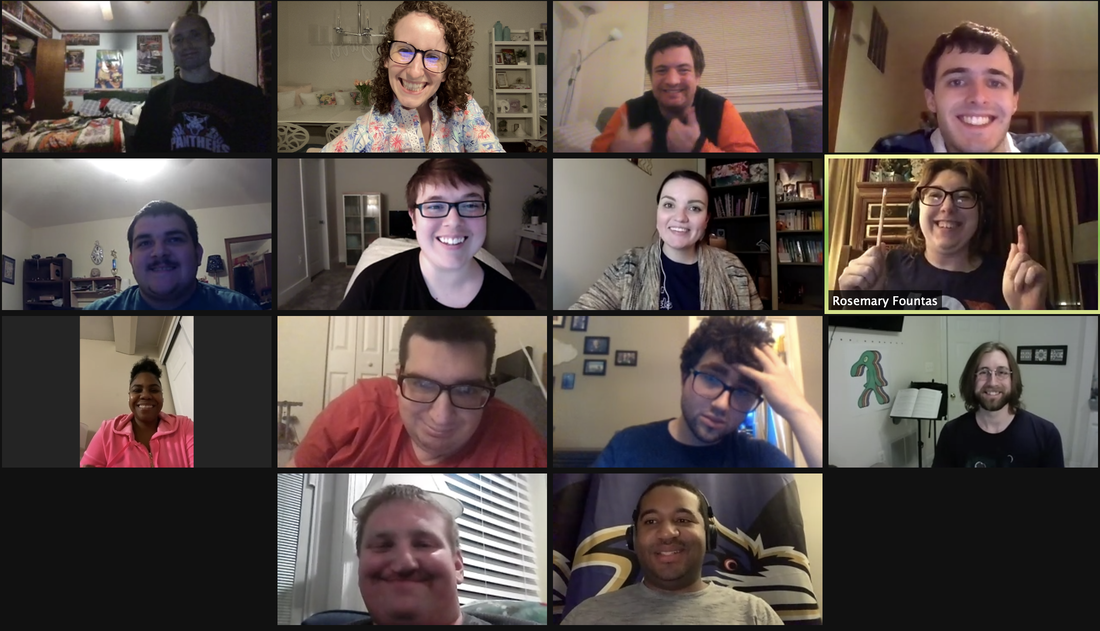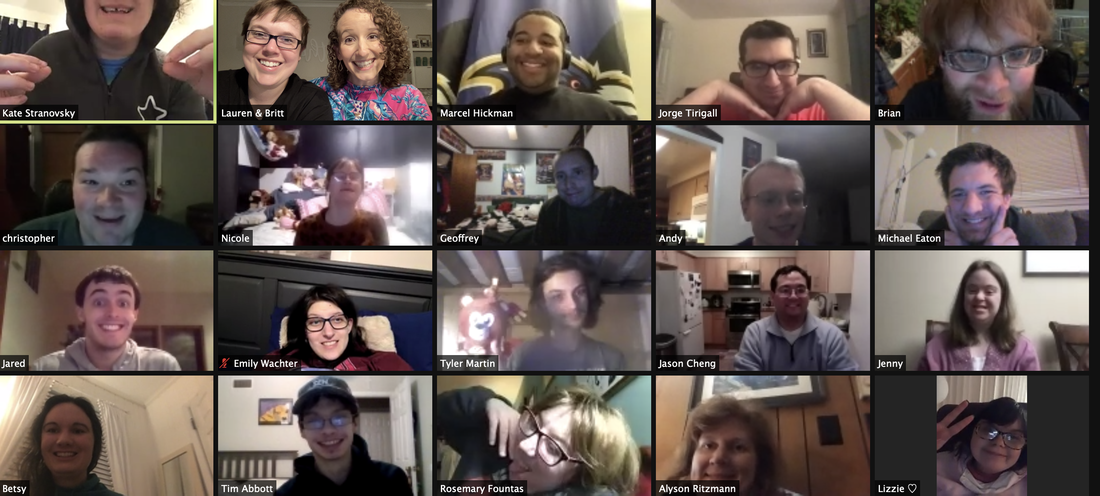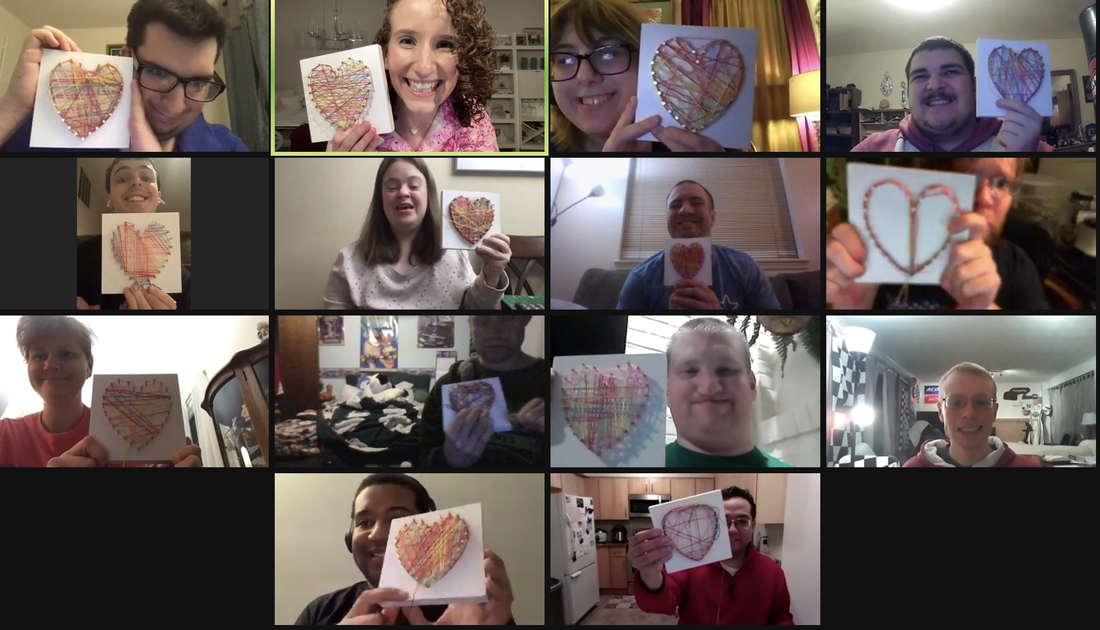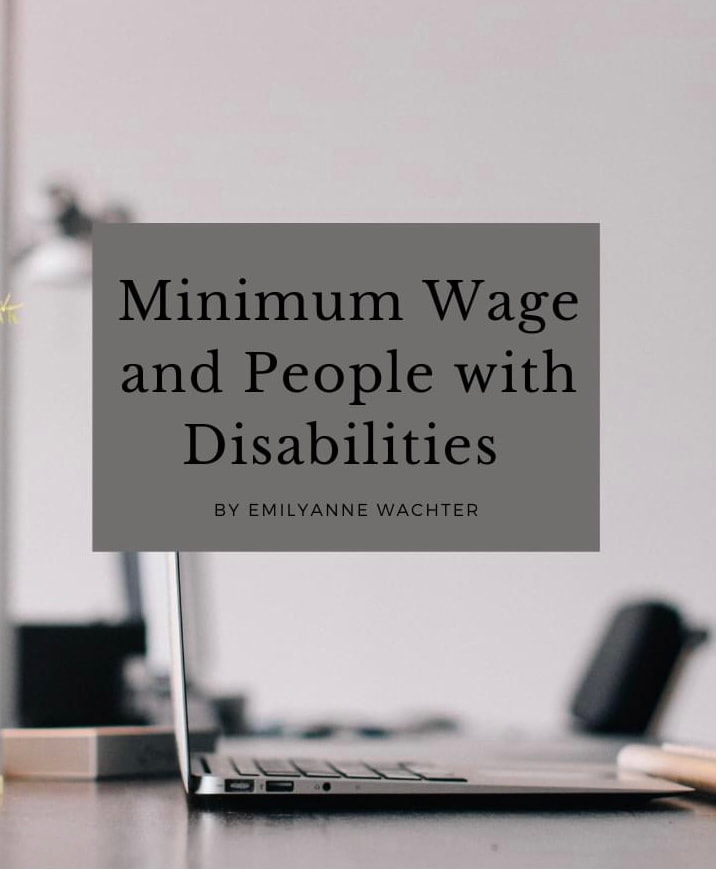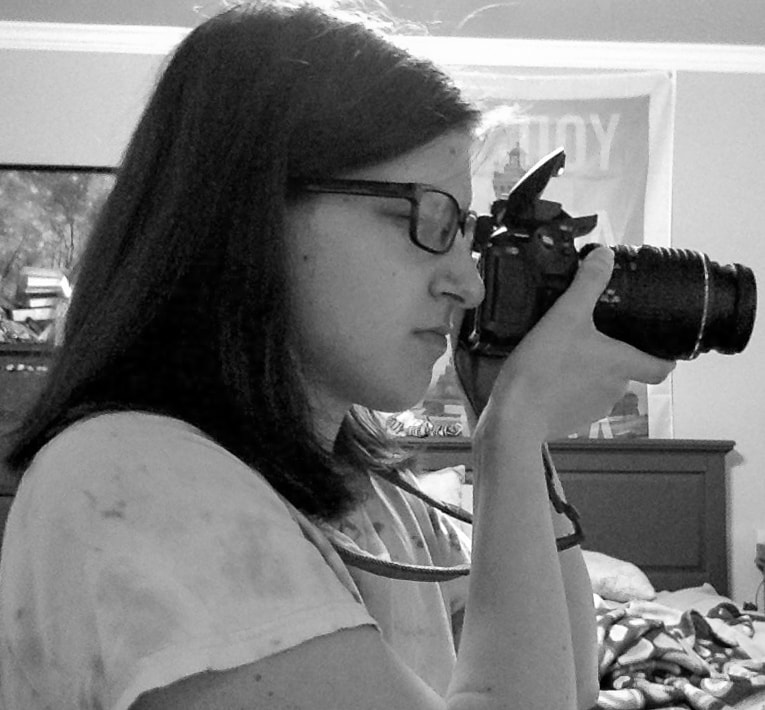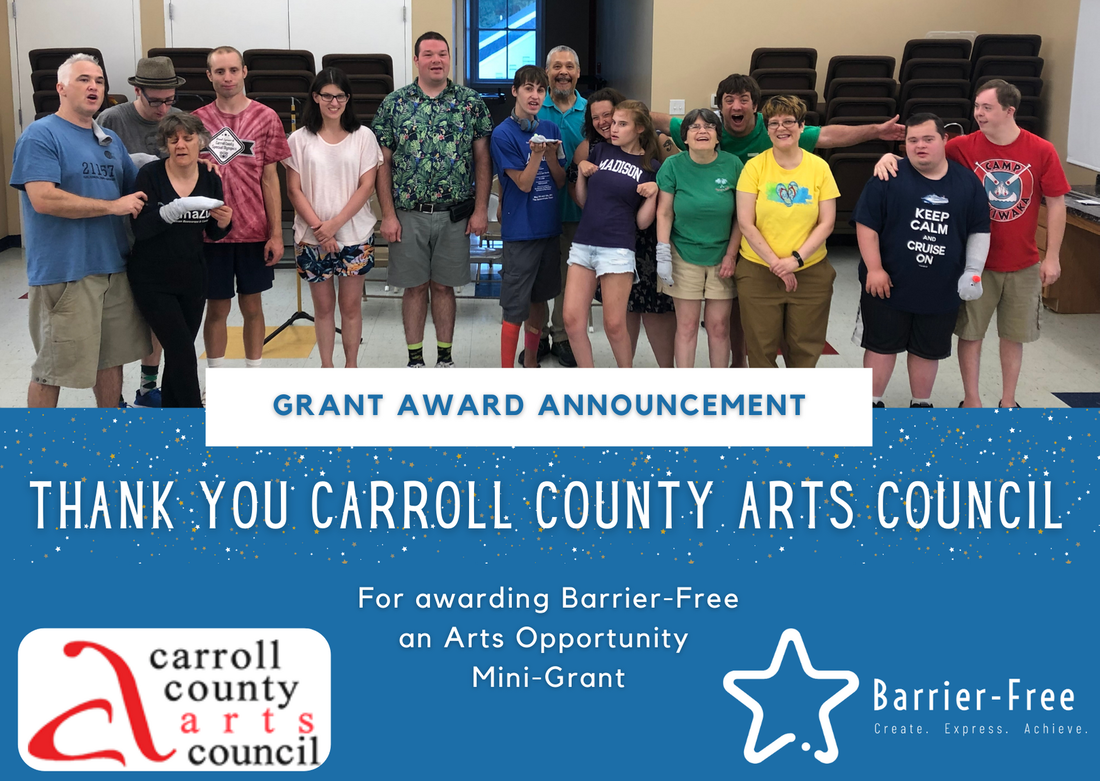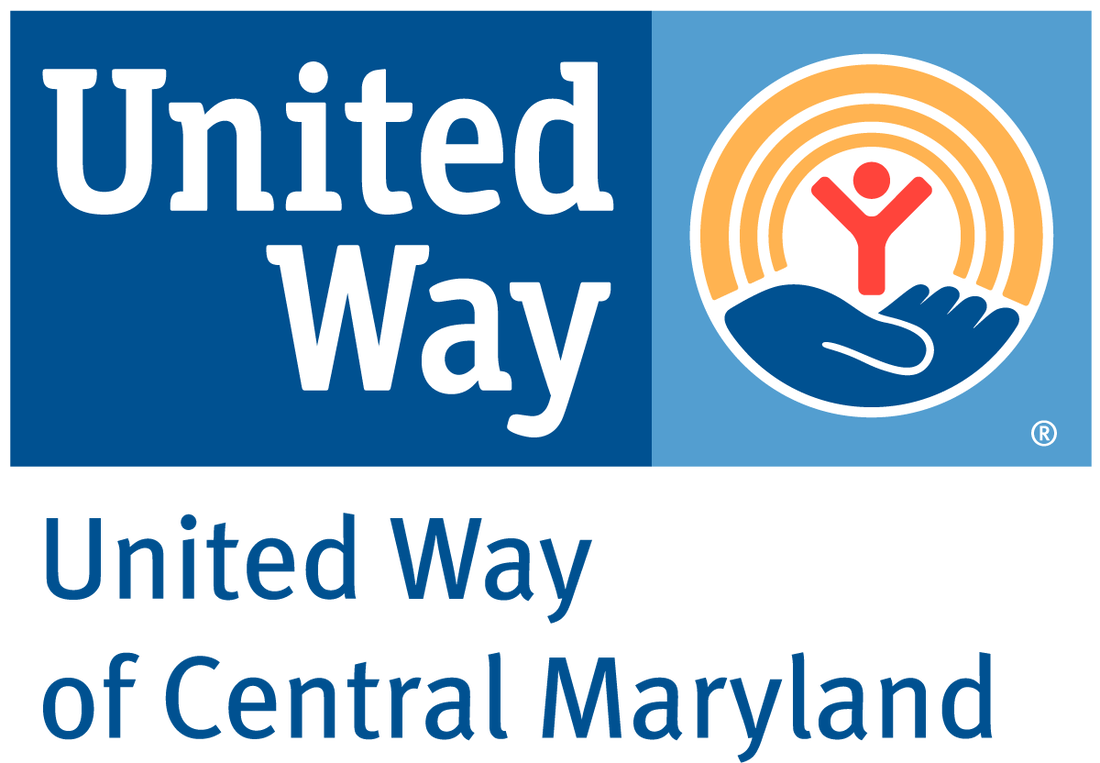|
Jorge Tirigall is a talented actor from Columbia, MD, and a member of our Art of Performing Company B. Catch him in his debut performance as Luigi Rodriguez in "I Do, I Think" premiering LIVE on our Youtube channel and Facebook on Friday, March 26 at 8pm.
Thank you Jorge for representing actors with autism and sharing about your experiences with Barrier-Free! View the video interview or read the full transcript below.
Question 1: Can you tell us a little bit about yourself?
My name is Jorge Tirigall. I am 23 years old. I was born on October the 24th 1997 in Baltimore, Maryland to my mom Roxanna Caruso and my dad Luis Tirigall.
Both my mom and dad were born in Argentina and immigrated to the United States. I describe myself as an American autistic who is descended from both Spanish ancestors and Italian ancestors.
Question 2: When did you become involved in Barrier-Free?
I became involved in Barrier-Free since January of 2021.
Question 3: What is your favorite part of creating our original shows?
To be quite honest, my favorite part is that I get to propose my own story ideas and to listen to the ideas of others. What I think around here is that, well, collaborating with others is I think a time of prosperity for the organization.
Question 4: Do you have a favorite character you've played?
My favorite character that I played was Luigi Rodriguez. Luigi Rodriguez is the groom in the play "I Do, I Think" created by Britt Burr. I really think that the part that I played, Luigi Rodriguez, is I think wonderful because I play a leading role and I'm very humbled myself to do it.
Question 5: How has Barrier-Free impacted your life?
Barrier-Free has allowed me to collaborate with Lauren Burr and come up with negotiable story ideas. In other words, everything I come up with is really accepted, but I think that all kinds of story ideas need to be very negotiable.
Question 6: What interests do you have outside of Barrier-Free?
I like making movies, writing, drawing pictures, and saving money. I am saving my money for any purpose like vacation, renting an apartment, and I think that saving money is really important for anybody whether they be self-employed or working in another job,
Question 7: What would you tell someone that is interested in becoming involved in Barrier-Free programs?
I would tell my friends to join the Barrier-Free organization if they want to do activities and expand their creative, artistic, and acting skills.
Question 8: What do you want people to know about individuals with autism?
I want people to know that individuals with autism like me are not some sort of wild animal but rather intelligent creatures that can create new ideas and new innovations to the theater arts. I really think that people with autism like me can have the ability and comprehension to make that kind of contribution.
Fantastic Job Jorge!!
Final thoughts from Jorge Tirigall, "I want to thank you personally for giving me this interview so that everybody could know more about me and so that everybody can share my story."
Don't forget to tune in Friday March 26 at 8pm to catch Jorge in "I Do, I Think" as Luigi Rodriguez on Youtube or Facebook!
0 Comments
I was inspired to write this blog after seeing a post on Instagram (@the.autisticats) about minimum wage and people with disabilities. There's has been lots of conversation around raising minimum wage to $15/ hour. It is still 100% legal for people with disabilities to be paid less than $1/hour. An article written by NPR highlights this problem, "Since 1938, U.S. labor law has carved out a rule for some people with disabilities, saying they can be paid less than minimum wage. The New Deal-era law was intended to encourage employment of more people." The article goes on to state, "This call by a top federal civil rights watchdog is a major milestone in the difficult history of so-called sheltered workshops and other "subminimum-wage" employers. They pay tens of thousands of people with disabilities an average wage of $3.34 a hour, the report says, for tasks like bagging newspapers, shredding papers by hand or wrapping silverware in napkins. They calculate wages by regularly timing how long it takes each worker to complete their task and comparing that productivity to an experienced worker without disabilities." People with disabilities working in these "sheltered workshops" or "work centers" are segregated workplaces. They exist to only employ people with disabilities. In America, people with disabilities are required when receiving government services to have a job or be in a day program. It makes no logical reason for subminimum wage to be in effect. I know the Biden administration has plans to eliminate "subminimum wage" and I hope they follow through with this plan. As for myself, I'm not in a day program or work in a sheltered workshops. I'm able to get a job and maintain it. I'm able to maintain my job because of the supports I have in place. I do make more than minimum wage, but that excludes me from other government services like Supplemental Security Income or Social Security Disability Income. The only program I qualify for is Medicaid. I don't make enough money to live on my own. My journey to be able to make enough money on my own is longer than my neurotypical peers. I'm just a single story; I'm sure there are many others who have similar stories. This blog is also posted on Photography through Autism.
Barrier-Free is thrilled to announce we are the recipients of an Arts Opportunity Mini-Grant from the Carroll County Arts Council totaling $1000!
This Mini-Grant will allow us to purchase new high-quality editing software for our upcoming productions, fund our costume & prop budget, and enhance our marketing efforts for our shows. Thank you Carroll County Arts Council for your support!! |
About our BlogThe Barrier-Free blog exists as a space to share Barrier-Free news, helpful information, and a creative sharing space. Archives
March 2024
Categories
All
|
|
Copyright © Barrier-Free 501(c)(3) All rights reserved.
|
|


